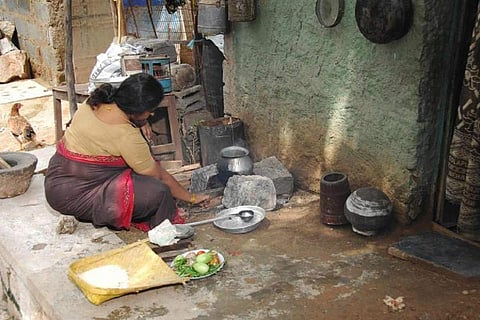

On May 1, the Bruhat Bengaluru Mahanagara Palike (BBMP) issued an advisory to Resident Welfare Associations (RWAs) in the city. One of the guidelines given in this document pertained to testing domestic workers coming to apartments for COVID-19 every 15 days, and for them to carry a negative RT-PCR report. It also includes a slew of instructions about avoiding mass gatherings in apartments, not using gyms, pools, and screening visitors, drivers and so on.
However, on May 4, the BBMP withdrew the instruction for domestic workers to be tested every 15 days, after some residents and representatives of RWAs pointed out the backlog of RT-PCR tests in the government facilities and waiting time to get results. Vishnu Gattupalli, one of the 16 members of the governing council of Bangalore Apartments Federation (BAF) – a collective of 950 RWAs and Apartment Owners Associations (AOAs) in Bengaluru – tells TNM that after this was pointed out, the BBMP said that only symptomatic people should be tested.
TNM spoke to some RWA presidents in Bengaluru to find out what they thought about the advisory pertaining to domestic workers. While most of them said that it was not practical to mandate testing for domestic workers periodically, some questioned why the focus isn’t on vaccinating and protecting this vulnerable demographic instead.
While the BBMP has withdrawn the order of fortnightly testing of domestic workers, some apartments may still mandate it in some form. For instance, Naveen, the Secretary of the Halasuru RWA for ward number 90, says that they are in the process of finding a vendor who will be able to facilitate monthly testing for the staff. When asked if the residents will also be tested periodically because they could also be carriers and cause transmission to domestic workers or staffers, Naveen, who is also the President of the RWA of the apartment building he resides in, countered that the residents are following lockdown measures and are at home. “Even for grocery deliveries, the security guard is bringing it to the apartment, not the delivery personnel. So we are trying to set up monthly testing for staffers, the cost of which we will cover,” he says.
However, Ashok Sharat, President of the Defence Colony RWA in Indiranagar, said that such an advisory by the civic authorities, even if it is to test symptomatic workers, is not enforceable in a setup of independent houses as opposed to apartment complexes. “We are instead trying to see how we can get them vaccinated. This sort of monitoring is not possible. We should be looking at protecting them with vaccination rather than telling them to do tests.”
While India has opened up vaccination for all above 18 years of age, several states have reported shortage of vaccines and are only still vaccinating those over 45 years of age with comorbidities, healthcare and frontline workers. Further, because on the spot registrations are not open for those over 18, CoWIN platform is the only way to register for a vaccination slot, which domestic workers may often end up being deprived of as they do not have the technical and technological access or know-how.
Further, Prasad, president of the Shanthinagar RWA, says that it is not feasible to ask domestic workers to go and stand at public healthcare centres which may have long lines. “They have to wait for 2-3 hours in life, and like anyone else, they would also have the fear of contracting the virus while waiting with a group of people, in line, to get tested,” he observes. “We did two camps earlier, and are looking to do another to get everyone eligible vaccinated, including the staff working or coming to work at apartments here,” he adds.